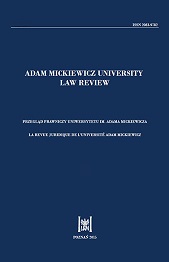The Good Neighbourliness Principle in Relations Between the European Union and its Eastern European Neighbours
The Good Neighbourliness Principle in Relations Between the European Union and its Eastern European Neighbours
Author(s): Adriana Kalicka-MikołajczykSubject(s): International Law, International relations/trade, EU-Approach / EU-Accession / EU-Development
Published by: Uniwersytet im. Adama Mickiewicza w Poznaniu
Keywords: good neighbourliness; European Union; European Neighbourhood Policy; EU enlargement policy;
Summary/Abstract: The good neighbourliness principle is one of the most important principles in international law which designates a model of peaceful cooperation and mutual tolerance among neighbouring states. Its violation in the past, however, very often led to military conflicts and many international disputes and may lead to serious disputes among neighbouring states in the future. Thus, the good neighbourliness principle has a clear legal value. This article analyses the good neighbourliness principle as a key principle that obligates neighbouring states to develop and to maintain peaceful interstate relations. The focus is twofold: firstly, on the scope, content and nature of the good neighbourliness principle in international law and secondly, on the impact of the good neighbourliness principle on the relations between the European Union and its Eastern Neighbours within the framework of the neighbourhood policy and the enlargement policy.
Journal: Przegląd Prawniczy Uniwersytetu im. Adama Mickiewicza
- Issue Year: 2019
- Issue No: 9
- Page Range: 137-150
- Page Count: 14
- Language: English

